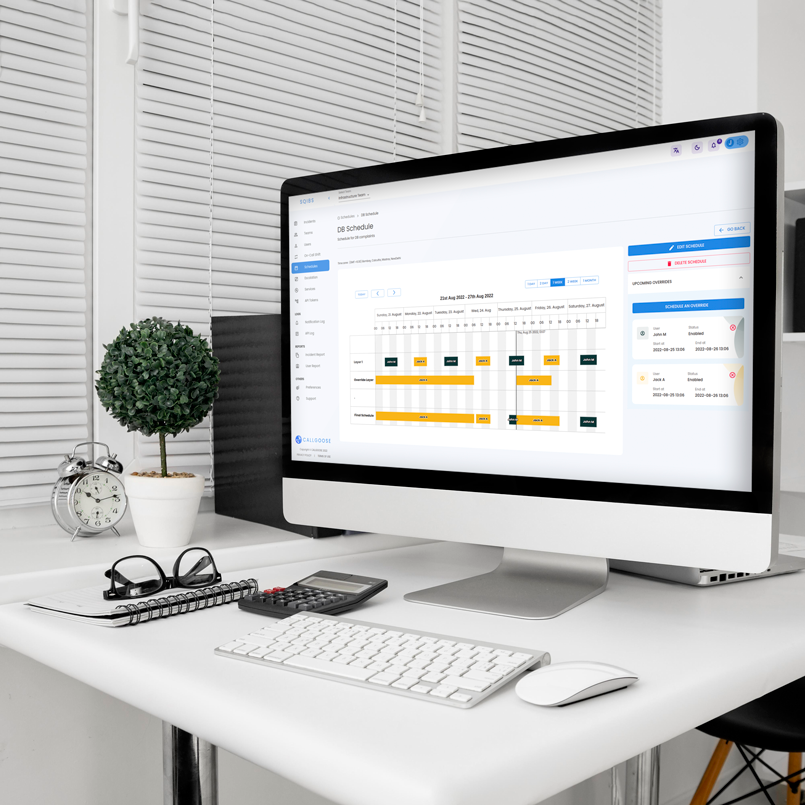Integrations
Logz.io
This document shows you how you can integrate Callgoose SQIBS with Logz.io.
Incidents will be creating in Callgoose SQIBS when there is a incident created in Logz.io as per the workflows configured by you in the Logz.io
In Callgoose SQIBS
In Callgoose SQIBS
Create filter as per the Logz.io workflows.
- For test purpose, create an API filter like this
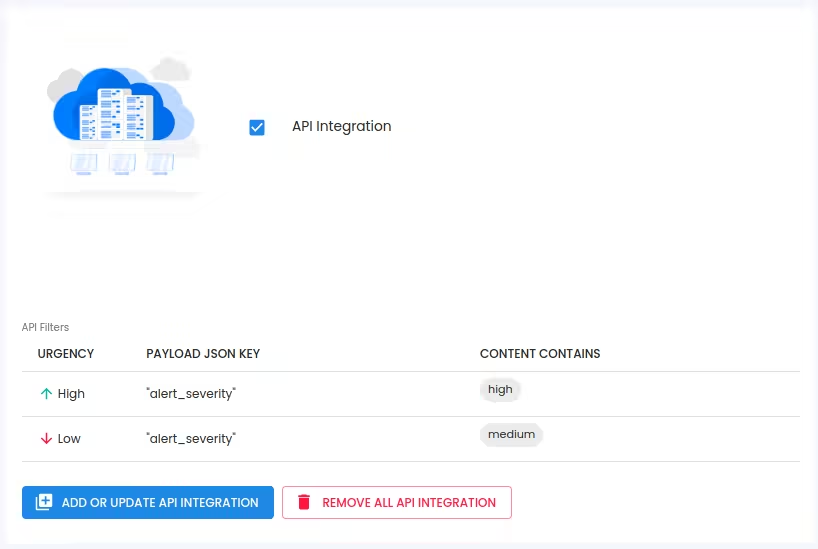
-> After test, create suitable API filter values depending on the payload sent by Logz.io to create a meaningful incident.
In Logz.io
In Logz.io
1.Go to Tracing from the left navigation panel. Click on Notification endpoints and click on the Add endpoint button to create a new SQIBS end point
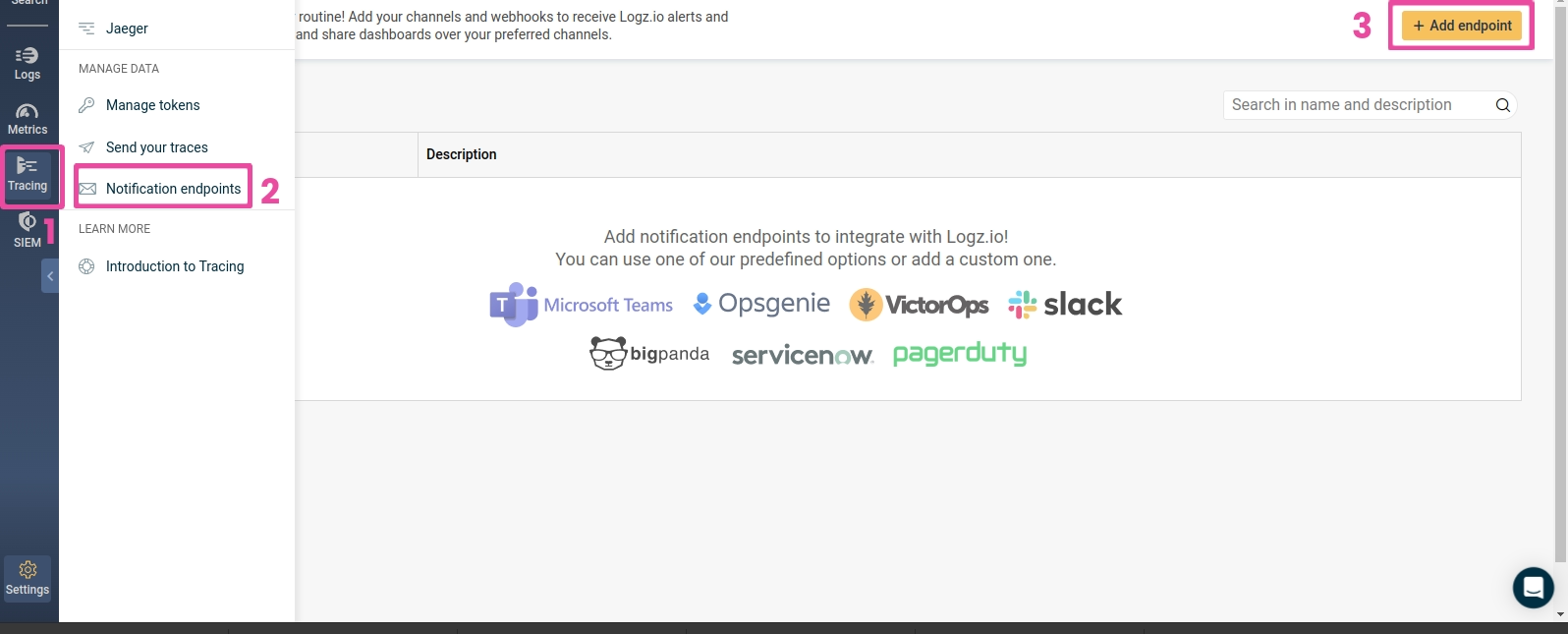
2.Fill the following in the window Add a new notification endpoint appear under Add endpoint button in the right corner of the window
Type : Select Custom
Description : (optional)
Name : CallgooseSQIBS
Webhook url : Enter your API Endpoint
Method : Select POST
Headers : content-type=application/json
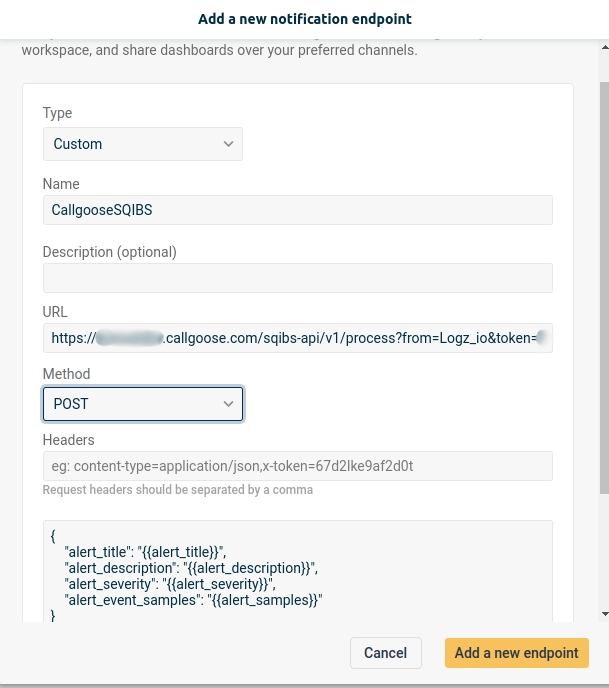
3.Custom payload: Use the following JSON payload.
{
"alert_title": "{{alert_title}}",
"alert_description": "{{alert_description}}",
"alert_severity": "{{alert_severity}}",
"alert_event_samples": "{{alert_event_samples}}",
}
Click on Add a new endpoint to save this configuration
Click on Run the test to send this notification to Callgoose SQIBS to test
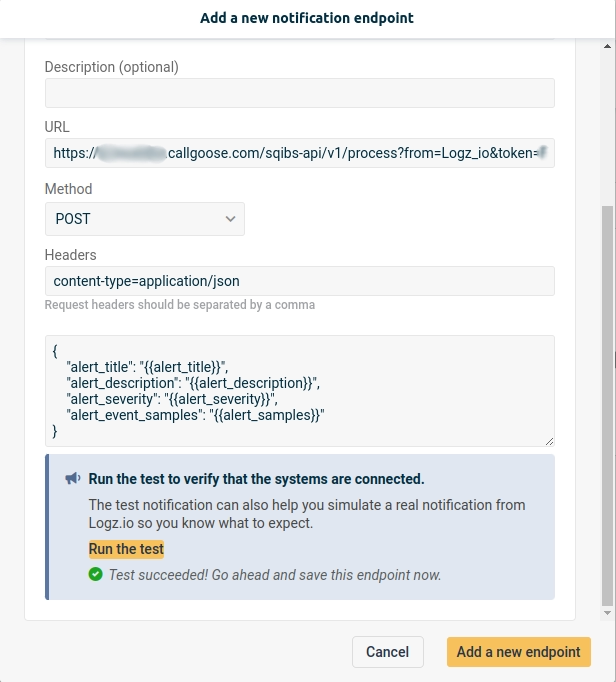
-> Please make sure you have added API filter contains values in Callgoose SQIBS before you send test notifications.
-> You can decide on ‘what Logz.io payload’(customise the values in the Custom payload section) you need notifications in Callgoose SQIBS and depending upon that you can create the API filter values in the Callgoose SQIBS
You can see that Callgoose SQIBS created the Incident as per the above Logz.io payload values’
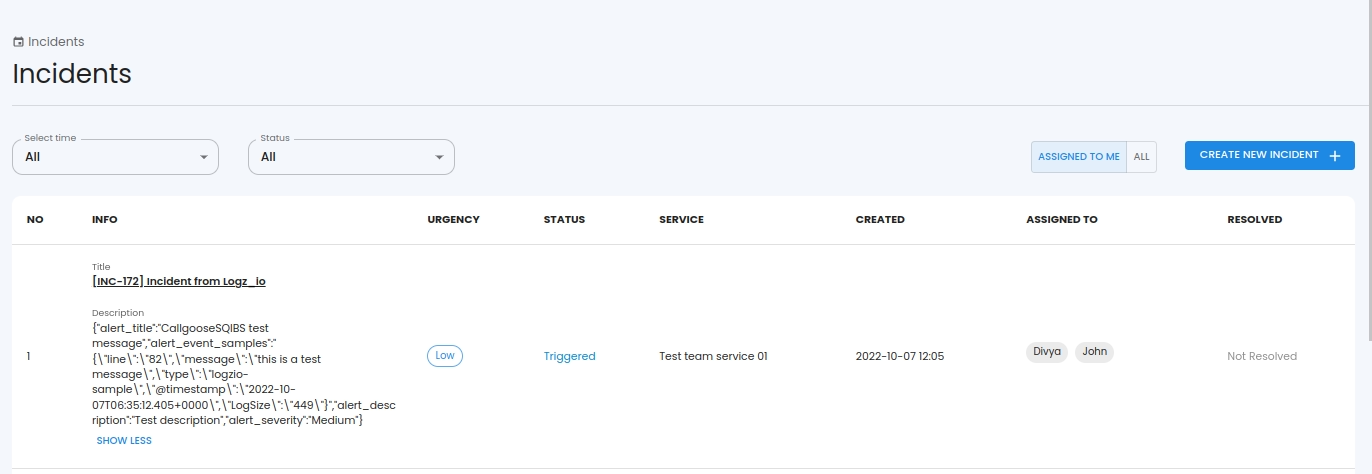
Now whenever an alert notification is triggered in Logz.io, an incident will automatically be created in Callgoose SQIBS if the API Filter is success for the payload.

